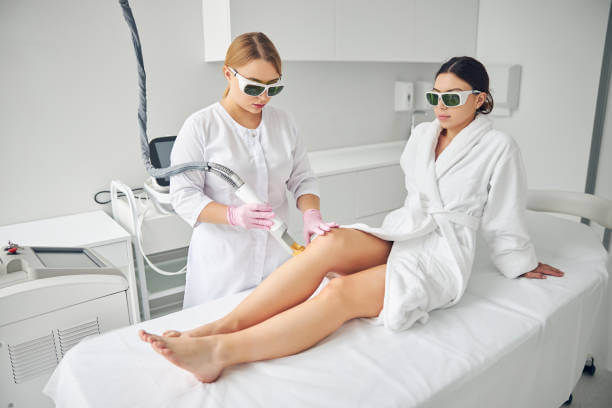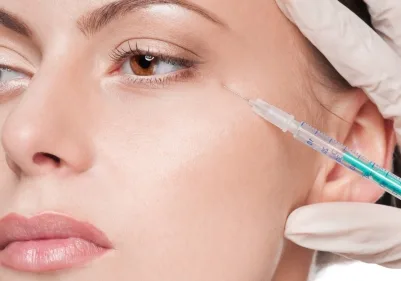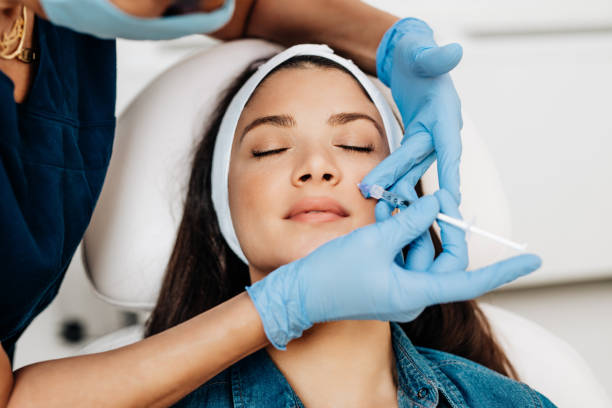
Introduction
Skincare is surrounded by countless myths, misconceptions, and half-truths that can leave even the most health-conscious individuals feeling confused about how to care for their skin. Popular advice often conflicts, with trends spreading quickly on social media and well-meaning friends offering solutions that may do more harm than good. Understanding the best approaches to healthy skin is essential—not only for maintaining a radiant appearance but also for protecting yourself from unnecessary risks and ineffective treatments. This comprehensive guide, inspired by insights from the Best dermatologist in Riyadh, will unravel the most persistent myths, empowering you with factual, science-based information for optimal skin health.
Understanding Skin Myths: Why Do They Persist?
Before diving into the specific misconceptions, it’s worth exploring why skin myths are so common and enduring. These fallacies often thrive due to:
-
Family traditions passed down through generations, often lacking a scientific basis.
-
Viral social media trends amplifying anecdotal advice over clinical evidence.
-
Cosmetic marketing prioritizing sales over facts, sometimes spreading misleading claims.
-
General lack of awareness about how skin functions and how products interact with it.
The Best dermatologist in Riyadh consistently emphasizes that clarity comes from understanding your unique skin needs rather than following popular but unproven ideas.
“You Only Need Sunscreen on Sunny Days”
Many people believe sunscreen is only necessary when the sun is bright and hot. However, ultraviolet (UV) rays penetrate clouds and reach your skin all year round. Accumulated exposure to UV rays can cause premature aging, pigmentation, and increase the risk of skin cancers.
Fact
The skin’s health is best protected by daily sunscreen application, regardless of the weather. UV rays can reflect off surfaces like water, sand, and even concrete, silently damaging your skin even on overcast days. Dermatologists globally, including the Best dermatologist in Riyadh, recommend making sunscreen a non-negotiable part of your daily routine.
“Oily Skin Doesn’t Need Moisturizer”
It’s a widespread notion that using moisturizer will make oily skin worse. Many skip this step, hoping to avoid greasiness and breakouts. However, dry skin triggers excess oil production, potentially worsening shine and congestion.
Fact
Every skin type needs hydration. The key is choosing a moisturizer suitable for your skin, such as lightweight, non-comedogenic formulas for oily types. Hydrated skin balances oil levels and improves the skin barrier.
“Natural or Organic Products Are Always Safer”
“Natural” and “organic” are buzzwords that often suggest safety and superiority. Many consumers believe that these products are less likely to cause irritation or side effects.
Fact
Not all natural ingredients are gentle, and not all synthetic ones are harmful. Poison ivy is natural but highly irritating. Conversely, many effective and proven skincare ingredients are lab-made, offering controlled results with safety testing. Patch testing is crucial for any product—natural or synthetic.
“You Can Shrink Your Pores”
Pore size often becomes a fixation, with products and home remedies claiming to make pores virtually invisible. Unfortunately, these promises stem from misunderstandings about skin biology.
Fact
Pore size is mostly determined by genetics and cannot be permanently reduced. Proper skincare, including regular cleansing and exfoliation, can clear debris and minimize the appearance of pores, but will not alter their actual size. The Best dermatologist in Riyadh suggests focusing on clarity and texture, not chasing pore shrinkage miracles.
“If Your Skin Burns, the Product Is Working”
Some believe that the tingling or burning sensation from scrubs, masks, or peels is a sign of effectiveness. This misconception often leads to irritation, sensitivity, and even chemical burns.
Fact
Discomfort is your skin’s way of signaling a problem, not progress. Effective skincare should not cause pain. If you experience persistent burning, redness, or severe dryness, discontinue use and consult with a dermatologist.
“Acne Is Only a Teenage Problem”
It’s commonly accepted that acne ends with adolescence, so many adults are caught off guard by late-onset breakouts. This can lead to frustration and the use of unsuitable products.
Fact
Hormonal changes, stress, diet, and lifestyle can trigger acne in adults. Adult breakouts require tailored treatment strategies and often benefit from medical intervention, not just over-the-counter remedies.
“Dark Skin Doesn’t Need Sunscreen”
This myth is especially prevalent and dangerously misleading, fostering a false sense of security among people with deeper skin tones.
Fact
All skin contains melanin, which provides some natural protection but not enough to prevent UV-induced skin aging or risk of cancers. Using sunscreen is essential for everyone, regardless of skin tone. The Best dermatologist in Riyadh advocates for inclusive skin protection.
“You Can ‘Detox’ Your Skin With Masks and Cleanses”
Detox products and regimes are trendy, but skin is already equipped with natural detoxification abilities through its barriers and the body’s organs.
Fact
No mask, cleanser, or juice detox can replace the body’s natural systems. Healthy skin comes from balanced nutrition, adequate water intake, gentle cleansing, and scientifically supported topical care.
Proper Skincare Routines: What Really Works?
Skin thrives with consistent, evidence-based care. Here are key steps recommended universally by dermatologists:
Cleansing
Use a gentle, suitable face wash to remove dirt, oil, and pollutants without stripping the skin.
Moisturizing
Hydrate daily with products matching your skin type to maintain a healthy barrier.
Sun Protection
Sunscreen, the foundation of skin health, prevents premature aging and reduces risks of serious conditions.
Treatment
Target specific concerns (acne, pigmentation, sensitivity) with dermatologist-recommended products, such as retinoids, AHAs, or vitamin C.
Regular Checkups
An annual skin exam by a qualified professional ensures early detection of any changes or concerns, boosting your long-term skin wellness.
The Psychological Impact of Skin Myths
Believing in skin myths can do more than just waste time or money—it can cause self-esteem issues or even make skin conditions worse. Misinformation drives frustration when efforts don’t yield results, and can sometimes delay seeking proper expert help.
Trusting fact-checked, reliable sources and advice from the Best dermatologist in Riyadh is a proactive way to nurture both your skin and your confidence.
How to Spot Skincare Misinformation
Being a savvy consumer protects both your skin and your wallet. Watch out for:
-
Over-the-top promises (e.g., overnight miracles or instant transformations).
-
Lack of clinical evidence or dermatologist backing.
-
Pushy sales tactics, especially tied to trends rather than results.
-
No information on possible side effects or who should avoid the product.
Always look for expert guidance, seek out reputable sources, and ask questions before adding new products or routines.
Frequently Asked Questions
✦ What makes the Best dermatologist in Riyadh a reliable source for busting myths?
The Best dermatologist in Riyadh is dedicated to staying up-to-date with the latest research, combining extensive experience with a patient-centric approach to offer solutions backed by science rather than trends or hearsay.
✦ How can I tell if skincare advice is a myth or actually helpful?
Always prioritize guidance that comes from certified dermatologists and scientific research. Beware of anecdotal success stories or viral internet trends, as these often lack evidence and may not suit everyone’s skin needs.
✦ Should I avoid all products with chemicals if I have sensitive skin?
Not necessarily. Many gentle, effective products contain synthetic ingredients designed for safety and comfort. Patch testing and professional recommendations help pinpoint what truly suits sensitive skin.
✦ Can diet alone improve skin issues, as some myths claim?
While a balanced diet supports overall health, no food or supplement serves as a cure-all for skin problems. Address specific conditions with targeted skincare and seek professional help for persistent concerns.
✦ How often should I change my skincare routine to keep up with trends?
Consistency is key. Stick to proven basics and give new products adequate time (usually several weeks) before judging results. Chasing every trend can overwhelm your skin and even lead to issues.
Conclusion
Separating facts from fiction is essential for radiant, resilient skin. By debunking common misconceptions and prioritizing evidence over hearsay, you’ll safeguard your skin’s health and appearance for years to come. The guidance of the Best dermatologist in Riyadh ensures you make wise, effective choices—because true beauty starts with knowledge, consistency, and confidence.








